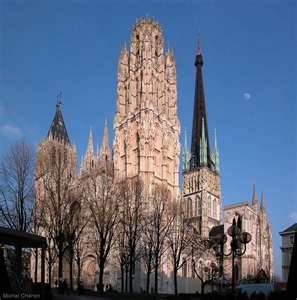Bless those always looking for ways to bend the rules, especially for those life essentials we can’t seem to live without – like butter. During the Middle Ages, butter was a banned food during Lent. Europeans of the south didn’t mind this so much. They used olive oil for cooking anyway. But those in the north, having neither the Mediterranean climate nor olive trees of their southern brothers, relied heavily on butter. Disgusted by and resentful of the distasteful oil sold them by Southerners, Northerners opted to pay a nominal fee (six deniers Tournois) to the Church to be exempt from the prohibition. Was it a few coins gathered? Hardly. The butter payments were so lucrative for the diocese of Rouen that the church was able to fund a new tower, aptly named the “Butter Tower,” completed in 1507.
Butter – 1 God – 0
Speaking of the religious, Martin Luther was particularly miffed by Lent’s butter bans. In 1520 he scoffed, “For at Rome they themselves laugh at the fasts, making us foreigners eat the oil with which they would not grease their shoes, and afterwards selling us liberty to eat butter .”


Shouldn’t that be :
Pope 1 – Butter 0
Rad.
The Catholic Church had a long and very controversial history of letting people buy their way out of various sins and bans. It was even thought at one time that one could basically pay enough to have their sins forgiven, and then be able to enter heaven. It was this practice that originally set Martin Luther on his protesting path; it wasnt so much that he was miffed at the butter ban as at the overall hypocrisy of all bans not being enforced equally.
Luther, btw, was not a fun guy.